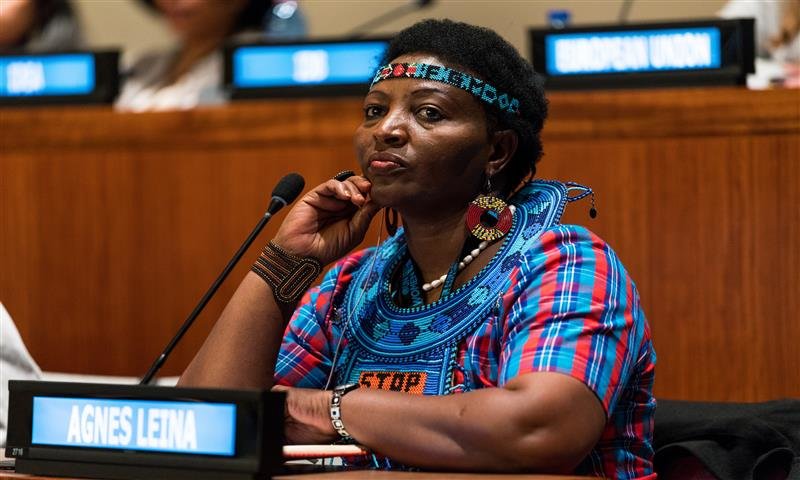
History was made at the United Nations Headquarters last week when, for the first time, the Commission on the Status of Women (CSW61) gave indigenous women the opportunity to vocalise their needs regarding their rights, economic empowerment and a full life as well as their capacity to be part of the solution to worldwide problems. The interactive dialogue session was ground-breaking in many ways and, given its first time focus on indigenous women, an achievement in itself.
The 2030 Agenda pledges to leave no one behind and states that the most disadvantaged should be given priority. The Chair of CSW61, H.E. Mr. Antonio de Aguiar Patriota (Brazil), noted in his opening remarks that indigenous women could be considered “the group furthest behind”. Therefore, the interactive dialogue session was an important step towards achieving the 2030 Agenda.
The session addressed four thematic areas relating to indigenous women: participation in decision making processes at all levels; violence; economic opportunities and; the impact of climate change and responses. Contributions from speakers produced a rich discussion that not only highlighted the unjust discrimination faced by indigenous women, but also the unique and valuable insights they provide to societies. The Chair noted that the discussion highlighted one important issue: portraying indigenous women not as victims but as agents of change and part of the solution to challenges women and societies face worldwide.
Indigenous women are underrepresented when it comes to participation in decision making processes at all levels. Vehicles mentioned for enhancing the political empowerment of indigenous women included: education; the media; academia; employment and; recognition of the specificity of the challenges faced by indigenous women. The importance of establishing partnerships across the different branches of government with indigenous women representatives was also discussed. Perhaps the most important message from this segment was that participation is not an end in itself but a pathway to produce change in societies, such as the change recently observed in Bolivia and Ecuador.
The segment on indigenous women and violence revealed the need for better data to better understand the specificity of the challenges faced by indigenous women. Indigenous women are subject to violence, exploitation and harassment by non-indigenous people but there are also harmful practices that are passed on from generation to generation in indigenous societies, such as early child marriages and female genital mutilation (FGM). A comprehensive approach to these issues is needed, and indigenous women and others were encouraged to benefit from the UN multilateral platforms that have already carried out extensive work in this regard.
It was agreed that indigenous women who are less educated, unemployed or who frequently engage in activity in the informal sector without social protections or guarantees, are less likely to be exposed to economic opportunities. However some strengths and assets were also highlighted: the possession of traditional knowledge; the intellectual property benefits and; the production of artefacts and textiles and other traditional objects produced by indigenous women which can be marketed domestically and internationally.
The Special Rapporteur on the Rights of Indigenous Persons, Ms. Victoria Tauli-Corpuz reminded everyone that indigenous women live in regions subject to extreme weather conditions such as small island developing states, highlands in the artic region and deserts and that climate change affects these societies even more seriously than many other parts of the planet. In terms of indigenous women’s response to climate change, the sentiment expressed by many was that for some time indigenous women have been the guardians of a wisdom that societies are resorting to more and more: that we must preserve the environment for future generations and nurture a sustainable planet. The Chair concluded the segment by commenting that indigenous women can be considered champions of sustainability and leaders in a transition that all of our societies have to undergo and for which the 2030 Agenda on Sustainable Development provides a blueprint.
The conversation on the empowerment of indigenous women and indigenous communities more generally will continue at the 16th Session of the United Nations Permanent Forum on Indigenous Issues (UNPFII) which will take place at the United Nations Headquarters in New York from 24 April to 5 May 2017. The special theme of this year’s UNPFII is, ‘Tenth Anniversary of the United Nations Declaration on the Rights of Indigenous Peoples: measures taken to implement the Declaration’.
To learn more about DSPD’s work on indigenous issues and UNPFII click here.
SOURCE: UNDESA DSPD
 Welcome to the United Nations
Welcome to the United Nations